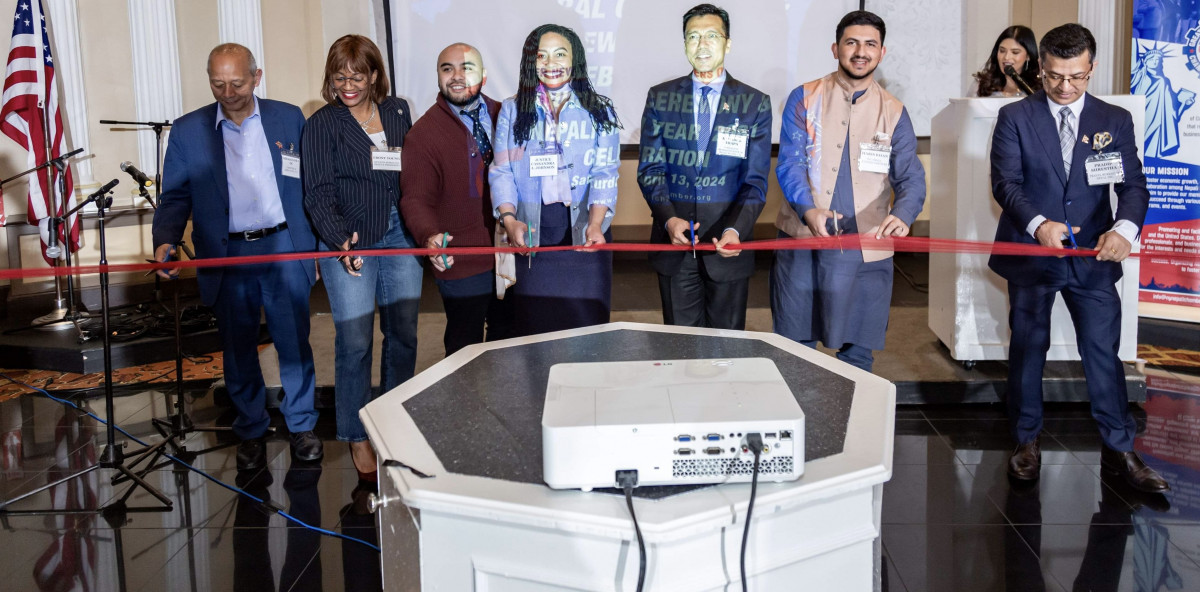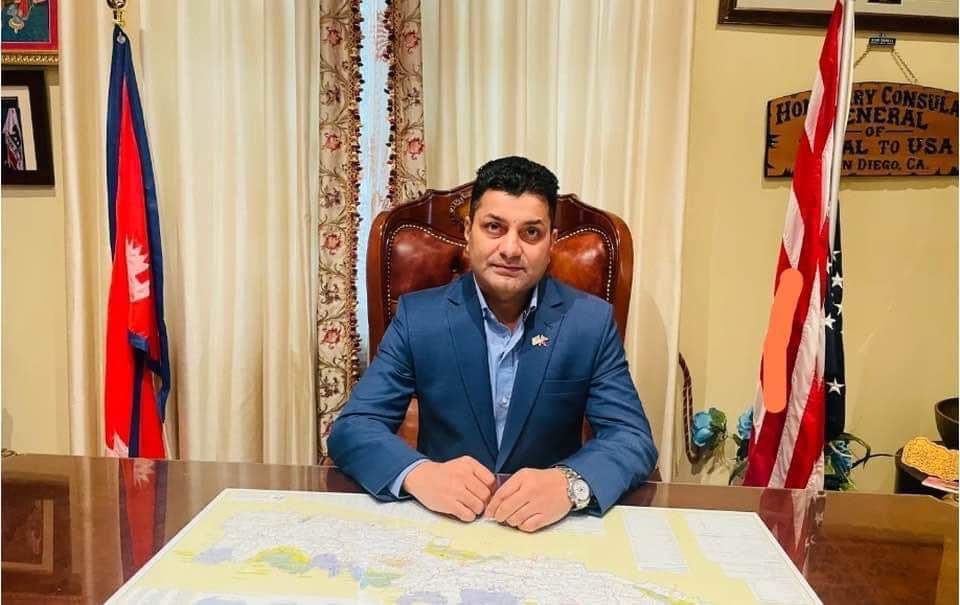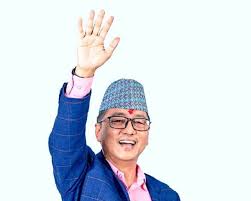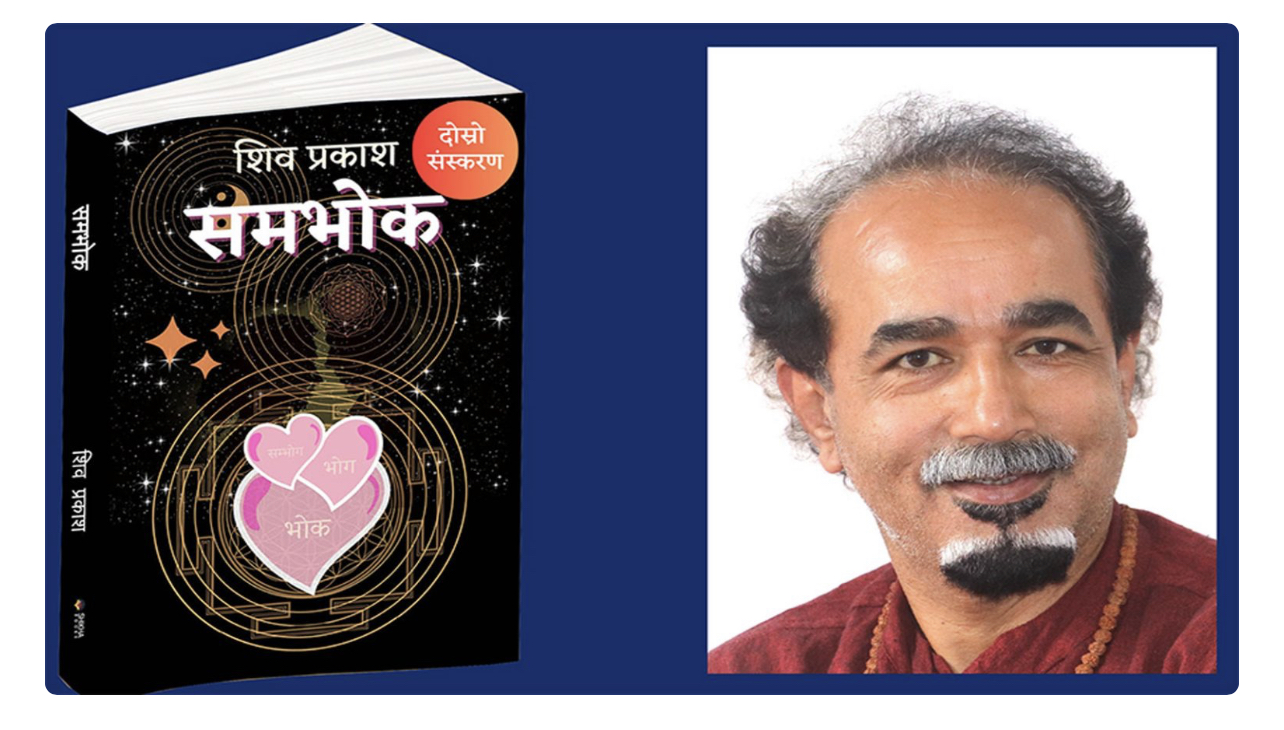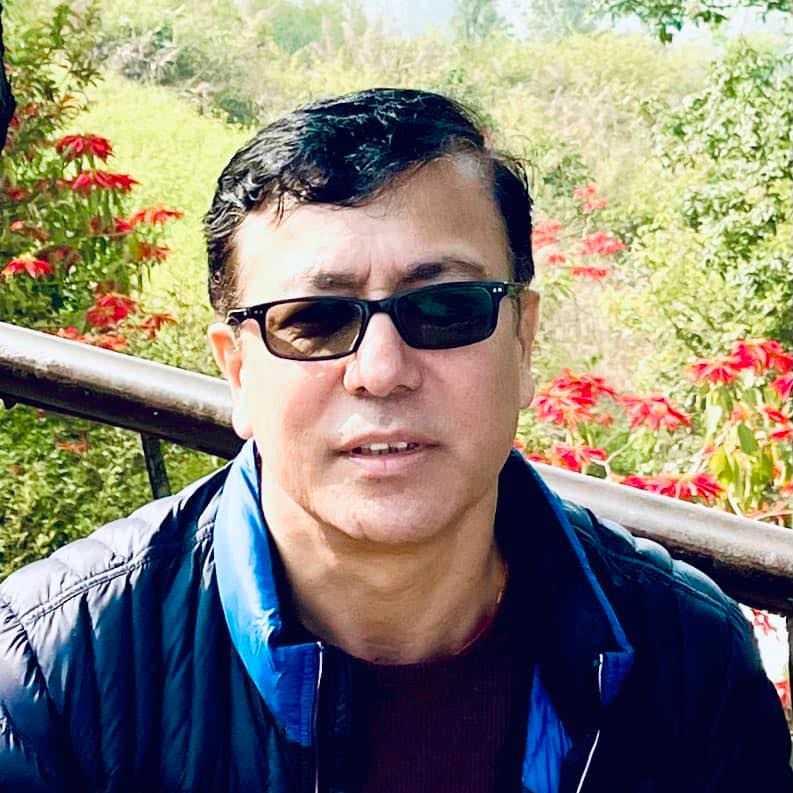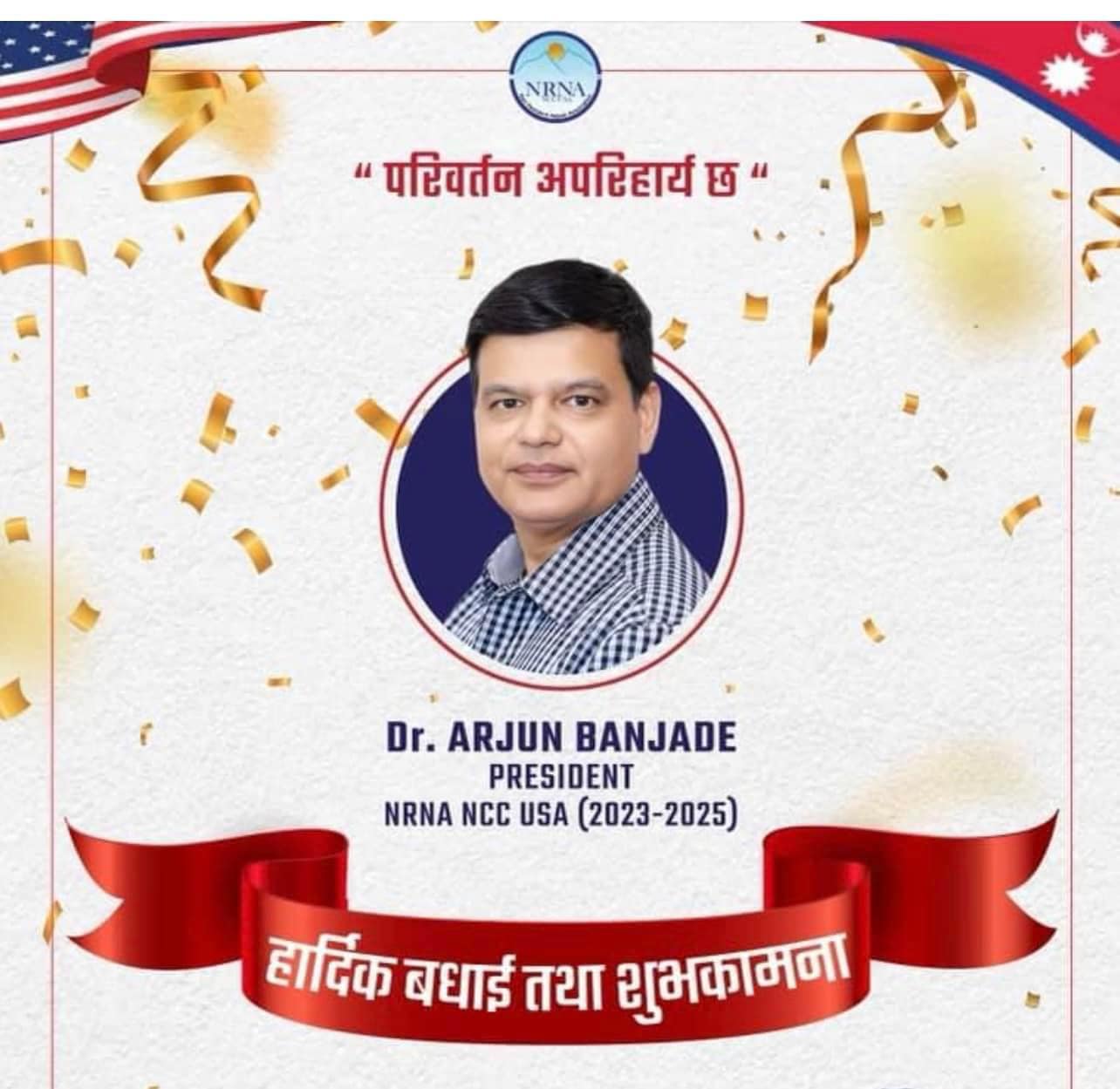Sanjay Thapa, a serving board member of Non-Resident Nepalis’ Association (NRNA)-USA, is a popular social worker based in New York. A civil engineer by profession, Thapa was born and raised in a middle-class family in Gokarna, Kathmandu. Having secured a first division in School Leaving Certificate (SLC) exams from Ananda Kuti High School, he completed the Intermediate of Science (I.Sc.) from Amrit Science Campus of Tribhuvan University, Kathmandu. He received a Bachelor’s of Civil Engineering degree from Pulchowk Engineering Campus, Lalitpur and a Master’s Degree from Madras College of Engineering and Technology, India. Thapa says social work is his motto and would do anything to best serve the Nepalese diaspora in the United States. Thapa aims to be the next president of NRN-USA, stressing that he has the vision, agenda and the commitment to take ahead the organization in an effective manner. He wants to bravely tackle the problems and challenges faced by Nepalis in the US and would not shy away from injecting reforms in the organization to meet that end. Thapa talks with Nepal24hours.com Special Correspondent Manoj Rijal about his plans on how he would lead the NRN-USA. The excerpts:
From the hills and terrains of Nepal to the open and innovative land of the US, how would you explain your journey from Nepal to the US? How would you relate the struggle of a Nepali youth, in general, with those of yours?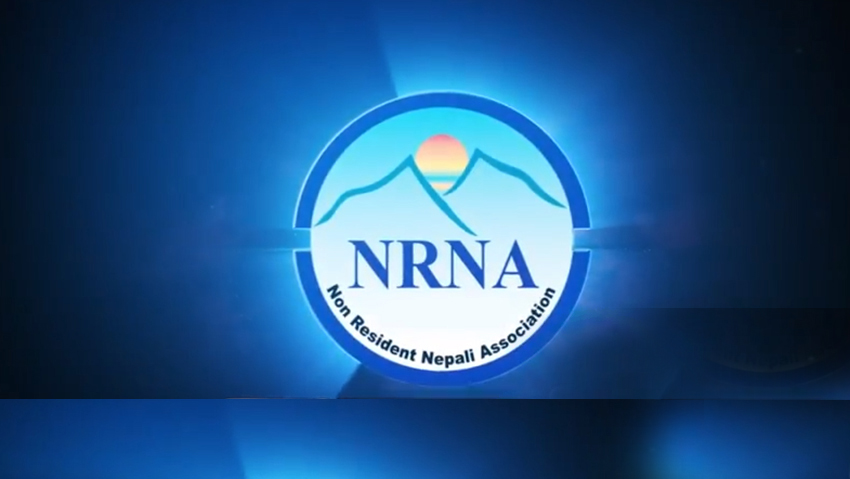
We Nepalese in America are very lucky because we were born in a beautiful country like Nepal and now we are looking for a better life in yet another beautiful country – the United States. My journey has also been similar with many other Nepalese youth as I have seen ups and downs in my life, too. I have also struggled to be who I am today. But one thing has always been true about me and that is – I have never forgotten the importance of social service and have always involved myself in social activities with a strong commitment and dedication. No matter where I have been, no matter what position I have had held in the past, my concept has always been clear that serving others is not an obligation but a privilege and we must take every opportunity to do so. As for the question of struggle of the youths, those struggles are made for getting some better opportunities in life to excel themselves. The struggle begins with a pursuit for a better and quality education and keeps going with the continued attempts to better themselves at every ordeal of life. We all know that getting a better and quality education is yet to be a fundamental right for everyone and we must work together to that end. Until that happens, we, as a community, should work together on ways to provide scholarships and other assistance for youths, so that they would be able to get the education of their choice.
Of late, the NRN-USA has been found engulfed in a number of problems and challenges. Being a serving Board Member of the NRN-USA, what do you think are the organization’s short term, as well as long term problems and challenges ?
Challenges are everywhere and will remain there for every time. What is important is that we shouldn’t be scared of them. Instead, we have to be brave enough to face the challenges. It’s a fact that the NRNA (NRN-USA) has been engulfed in a number of problems. However, it has to come to everybody’s notice that this umbrella organization of the Nepalese people in the U.S. has also been mitigating problems, as and when they arise. And thereby, we are moving forward too. By finding the best possible solutions to the problems, the NRNA has made itself better than before. And if we work more closely than before, we can take the NRNA to the next level of success and make it more trustworthy, revered and credible than ever before.
What do you think could be the solutions to the hurdles of the NRN-USA? How can they be mitigated in an effective manner ?
The problems of NRNA are not stronger than our willingness to resolve them. Addressing the existing problems as well as preventing the potential problems in the future can only be done with more and more involvement of people in the organization. As you know being an NRNA member is still an individual’s choice, we are in a phase where we have to beg to people to be the members. As membership is not mandatory, this situation is giving birth to unwillingness of people to join the organization. This is the main hurdle of the NRNA. When people willingly become a part of NRNA, I believe that we would be in a position to resolve the problems in its entirety, or at least be able to fade them away gradually. That’s why, instead of pointing to the problems of NRNA and distancing oneself, everyone should consider being a part of NRNA and involve in the problem solving process, so as to make this organization as effective as we are expecting it to be.
How would you assess the plight of Nepali diaspora in the U.S.? What could be the top four problems of Nepali diaspora in the U.S. ?

First of all, I feel proud that the Nepali diaspora in America has always stood united at the time of need, despite any differences it may have within. However, there are certain things that we need to address to make it more united and focused in being part of the solutions to our longstanding problems – the problems that we can solve and that we should be solving. As for me, I would like to pinpoint the top four problems of the Nepali diaspora in the U.S. in this manner:
Number One problem is, we are not as united as we should have been. Instead of having a single, united and strong Nepali umbrella organization, we are continuously involved in creating new organizations of all types. We must realize the fact that we are a minority community in the U.S. and our voices will be heard only when we have one single voice.
Secondly, we are not focused on creating economic opportunities for all . We must start to think about it and work towards finding ways to drive Nepali community towards economic stability. I believe that we can do this collectively.
Thirdly, we have responsibilities towards our motherland, our country of birth – Nepal, as well. To fulfill those obligations, we should explore ways to see what we can accomplish to help Nepal get better and better with the passage of time. The main problem is that we are so quick to comment on the problems of Nepal but often fail to provide a solution. From here onward, we must be able to start giving some significant considerations to the causes of Nepal as well, so that we would be able to help our motherland in every way we can.
Last but not the least, our future generation is not so connected with our Nepali community as we older generations are. As they are distancing themselves from us, it’s obvious that in the future, our voices and recognition won’t even be in a position as it is in the present situation. In this backdrop, we must find ways to woo the young children and youths to come closure to our community and our activities. It is imperative to make sure that the young generation do not forget our language and culture and they develop themselves as bilinguals. This can only happen if we become able to vindicate ourselves and show to them that we are much better than they often think about us – as to who we are and where our roots are.
What are the existing mechanism within the NRN-USA to address the problems of Nepali diaspora in the US? Are they enough? What should be done to make those mechanisms more effective ?
NRNA has always been active in addressing the problems and challenges of the Nepali diaspora in the US. It has stood firm as an umbrella organization for all Nepalis and has played its role at the time of need.
We, within the NRNA, have established some mechanisms to address the problems of the Nepali diaspora in the US. For instance, we have set up a help desk to assist those Nepalis who are in need of help. I, myself, have served being in the help desk, providing the best possible services I could and our team could. However, our system as well as mechanism are more reactive than proactive. Instead, we need to make sure that we have both the reactive as well as proactive system in place to address the problems of the Nepali diaspora. We must be able to assess as to what situations could surface or arise and how we would be able to tackle them. And let me re-assert here that things can only be done when we work together and united.
You are an engineer, a technocrat, by profession. You have established yourself in the US on your own. Why do you think a technocrat should lead the NRN-USA ? How would you like to put forth your claim for the president’s role in the NRN-USA ?
I am not seeking the NRNA leadership just because I am a technocrat. I am running to be the president of NRNA because I have some progressive ideas and agendas on how to steer ahead the organization in a better manner compared to its current situation. As I am running with some progressive and constructive ideas, I am sure that I will secure a victory in the upcoming election. Once that happens, my primary concern will be to make the NRNA a dynamic organization, where everybody can take the mantle-ship and ownership, where everybody can come up with some better ideas and where everybody can have their ideas executed, too.
There might be some other technocrat or non-technocrat candidates in the upcoming NRN-USA election. What would differentiate you from them ?
Let me re-emphasize that I am not running just because I am a technocrat. I am running because I am an experienced hand and I have some better ideas, visions and agendas – than others – to make this organization more workable and keep us more united, so that we could proceed towards success and economic prosperity – all together.
Would you like to say something more about your candidacy for the president’s role of NRN-USA ?
I would like to thank each and every member of NRNA for deciding to be the members of this great organization through a fair and transparent process that I myself had initiated. I would further like to request each and everyone to please kindly cast your valuable vote based on the agendas of the candidates as well as their background. My works so far being a serving board member of NRNA, are crystal clear to everybody. I have worked honestly and would work honestly in the future, too. In this backdrop, I would like to request everybody to please kindly vote for me, so that I would be able to serve you and your cause as the president of NRNA (NRN-USA). Your single vote will count a lot, as it can bring a luminous and long awaited change – that we all deserve and would expect to happen, too.
Source : Nepal24Hours


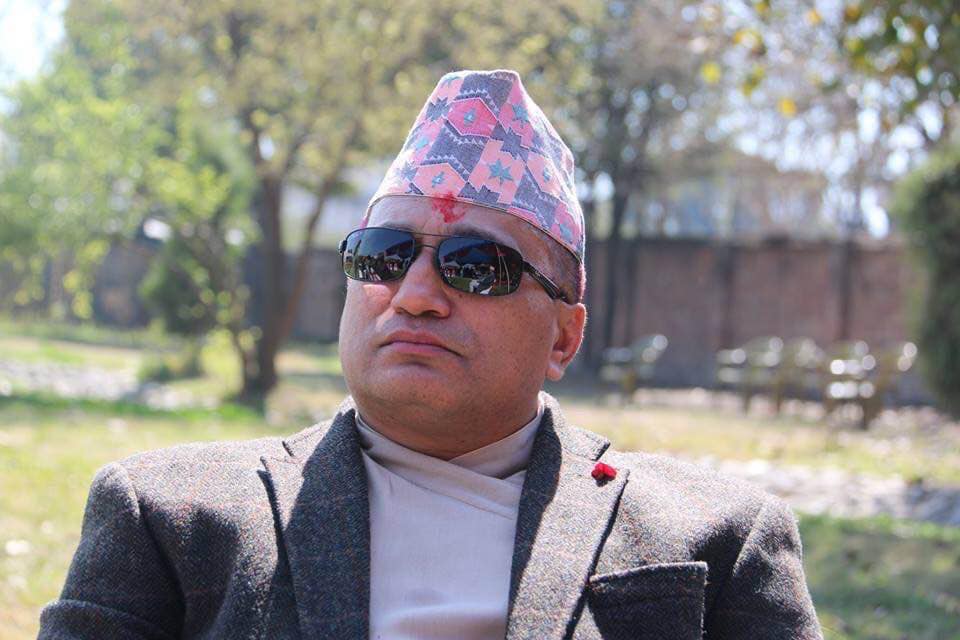
 खुल्लामन्च
खुल्लामन्च
